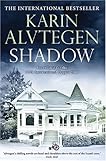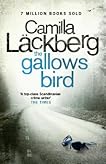The premise of this novel intrigued me, and the fact that it was written by a person with a doctorate in robotics made it too good to pass up. I bought my Kobo edition and read it over the course of a few days.
The premise is awesome. The robots, the war and all that — great. But this read like an early draft. The author structured the novel as a series of reports and I believe he did this because he didn’t give himself enough time to actually write the novel with developed characters, a fully-fleshed-out story line or overall story arc. The characters were all somewhat robotic and distanced. This may have been intentional, but it was off-putting. The biggest disappointment was that the report-structure completely deflated the tension in a story that had all the makings of a page turner.
I suspect the early interest of Dreamworks put the author on such a tight deadline that the novel suffered. As a screenplay this works. As a novel? Not so much.
Having said that, it will still appeal to reluctant male teen readers. The report style is like a series of bang-em up/shoot-em up short stories.



